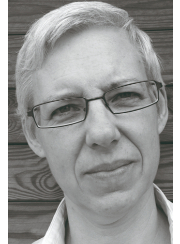Louise McNally holds a BA in Modern Languages and Linguistics from the University of Delaware (1987) and a PhD in Linguistics (1992) from the University of California, Santa Cruz. She taught at Indiana University, The Ohio State University and the University of California, San Diego before joining Universitat Pompeu Fabra (Barcelona) in 1995, where she is currently Professor of Linguistics in the Department of Translation and Language Sciences and a member of the Formal Linguistics Group (GLiF). She was awarded an Alexander von Humboldt-J.C. Mutis Research Award in 2017. She is associate editor of the journal ‘Semantics and Pragmatics’, co-editor of Springer’s ‘Studies in Linguistics and Philosophy’ series and on the Advisory Board for the Oxford Research Encyclopedia of Linguistics. She has served on the Electorate Nominating Committee for the Linguistics and Language Science Section of the AAAS (2016-2019) and on European Research Council Starting Grant and Synergy panels.

Louise Elizabeth McNally Seifert
ICREA Academia 2008, 2013 & 2018
Universitat Pompeu Fabra · Humanities

Research interests
My research is concerned with how we convey meaning through language. A successful theory of meaning should account for our ability to construct and interpret an infinite variety of complex utterances; it should also explain how we integrate general conceptual knowledge, information related to the specific individuals and situations we refer to, and information about the structure of the discourses in which we participate. My goal is to develop a general theory of meaning that makes testable predictions about the similarities and differences between languages, about human language processing and acquisition, and about language change; one that, eventually, might be computationally implemented. Traditionally, theories of meaning have differed according to whether they take language to signify something to the world, versus some sort of conceptual representation. The model I am developing differs from previous models its explicit integration of these two approaches to meaning.
Keywords
linguistics, semantics, pragmatics, computational semantics